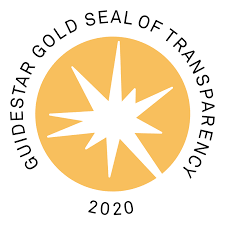PRESS RELEASE: Wednesday April 29, 2015
The UK’s Investigatory Powers Tribunal (IPT) has today ordered intelligence agency GCHQ to destroy illegally collected communications of a Libyan rendition victim.
Today’s decision marks the first time in the IPT’s fifteen-year history that it has upheld a complaint against the security services. It is also thought to be the first time the secretive tribunal has ordered an intelligence agency to give up surveillance material.
The messages to be destroyed are legally privileged communications belonging to former Gaddafi opponent Sami al-Saadi. Mr al-Saadi was kidnapped in a joint MI6-CIA operation and ‘rendered’ to Libya in 2004 – with his wife and four children between the ages of six and twelve. The same month his colleague Libyan politician Abdul-Hakim Belhaj was also seized and delivered to Gaddafi, along with his pregnant wife Fatima Boudchar.
Both families have brought civil claims against the then-Foreign Secretary Jack Straw, former MI6 counter-terror head Sir Mark Allen, and the UK Government for their kidnap. The al-Saadi family settled their civil claim in December 2012 for 2.2 million pounds; the Belhaj claim comes before the Supreme Court this year. A Metropolitan Police investigation into both kidnappings, Operation Lydd, is thought to be near conclusion and with the CPS for a charging decision.
In 2013 the Belhaj and al-Saadi families also brought this claim in the IPT, alleging unlawful interference with their right to communicate in private with their lawyers. During the case the security services were forced to concede that for the past seven years they had operated unlawful policies on collecting private lawyer-client communications.
Some questions remain after the IPT’s judgment. The IPT made ‘no determination’ in favor of Mr Belhaj and his wife. The IPT can make ‘no determination’ either if there was no spying, or if the IPT finds that spying did take place but was lawful. But the couple may never know the precise reasons for the decision.
The IPT has ordered GCHQ to turn over the illegally collected material to the Interception of Communications Commissioner for safekeeping.
Cori Crider, a Director at Reprieve and counsel to the al-Saadi and Belhaj families, said: “GCHQ spied on privileged legal communications, in a case where they were being sued by a rendition and torture victim. We are pleased that one man has finally beaten the security services in this secretive tribunal. But this kind of illegal snooping makes phone hacking look like child’s play, because it rigs the whole justice game in the government’s favour.”
“It’s also inconceivable that Mr al-Saadi was spied on while Mr Belhaj was not. I confess I find this part of the IPT’s decision very difficult to make sense of.”
Sami al-Saadi said: “I am glad to be the first person to win against the spies in this Tribunal. I had always been told I had a right to communicate with my lawyers about this torture case in private, but that clearly wasn’t the case. This was illegal behavior and I hope now that the right to take legal advice in private will never be ignored again.”
Abdul-Hakim Belhaj said: “My wife and I are perplexed by the decision. My old friend Sami was and is an important man. But we fought Gaddafi together, were both kidnapped by MI6 and the CIA, and brought identical cases in the UK, so what explains the different outcome? Is it because the Tribunal will not tell me I have been under surveillance? If so, they need not worry. Those of us who have been exiled from dictators and spent years in their dungeons assume we are spied on. I still believe I ought to have the right to speak privately to my lawyers, though, and so we will consider our next steps carefully.”
Richard Stein at Leigh Day, who represented the families in the Tribunal, said:“Today marks the end of GCHQ’s standard boilerplate response that its activities are lawful, necessary and proportionate. GCHQ unlawfully spied on privileged legal communications for years, and the secret oversight mechanisms failed to stop it. The time has come for the spies to respect every person’s fundamental right to consult a lawyer in private.”
“I am sure that the unlawful behavior we have uncovered in this case is the tip of the iceberg. All lawyers and their clients dealing with cases involving MI5, MI6 and GCHQ should consider whether to lodge a complaint in the Tribunal to protect their privileged communications.”
ENDS
Notes to editors
1. For further information, please contact Katherine O’Shea at Reprieve US: [email protected] / (+1) 917 855 8064
2. In November 2014, the government was forced to disclose its lawyer-client snooping policies which showed that GCHQ and MI5 had for years advised staff that they could “target the communications of lawyers,” and use legally privileged material “just like any other item of intelligence.” For more information, see here.
3. In February 2015, the government then conceded that these policies were unlawful, and did not meet the requirements of the European Convention on Human Rights (ECHR). The emails can be viewed here.
4. The full judgement is available here and the determination is available here
5. Reprieve is an international human rights organization
